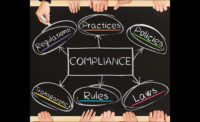There are many ways to pick up on change in the profession. One important method is sampling- conducting a survey. Industrial Safety & Hygiene News has been conducting annual trends surveys for more than a decade now. Data from these surveys are used to prepare ISHN's annual "White Paper Report." A lot can be gleaned about changes in the industrial hygiene field by studying the responses.
In ISHN's 1996 Safety & Health Planning Survey, the question was asked, "Which of the following are likely to be part of your professional life in 1996?" For respondents who listed their primary job function as industrial hygiene, 40.8 percent are worried about job security. Twice as many IHs are worried about their jobs than safety professionals.
More troubling, 32 percent of IHs responding to the survey report they will "Actively look for another job;" 20 percent say they will "Seriously consider a career change." As with the job security question, these numbers are the highest among all job functions surveyed- safety, IH, environmental and occupational health.
Expert opinions
Obviously, there's a value to what experts think about our changing profession. Here again we have a wealth of information to assess. In the November, 1995, issue of the American Industrial Hygiene Association Journal a commentary was published titled, "Industrial Hygiene and Occupational Health in the 21st Century: Summation of Papers Presented Before the Yuma Pacific-Southwest Local Section." This commentary represents the cream-of-the-crop of expert opinion in the industrial hygiene field.The Yuma Pacific-Southwest Local Section of the AIHA is unique for a number of reasons. Consider that 18 members of this section are past presidents of the AIHA; two are past managing directors of the association; one is the current executive director; one is a former assistant secretary of labor; six are past directors of AIHA; and three are current members of the AIHA board of directors. Other members could fill a long list of important people in the IH profession. And as indicated in the commentary, all have an intense interest in the future of the IH profession.
So what do these people see in their crystal ball? Top among their predictions, which could match up with the survey above, is that we'll see a decline in the number of practicing IHs. Also, IHs will need to be more broadly trained; more management skill will be needed; and industrial hygiene will be a more difficult field to practice.
Personal experience
To really appreciate change you have to be right there with it. That's where contributing writers for ISHN come into the picture. I am a long-time practicing industrial hygienist and I have committed myself to an industrial hygiene career. I'm also working with a large corporation that takes aggressive action to be a top player in a highly competitive and changing global economy. Reengineering, quality improvement, rapid learning- I've experienced these and other management changes, and I'm certain to encounter many more before I hang up my IH sampling equipment for the last time.What changes have I personally experienced that are impacting the IH field? Approximately three years ago my employer embarked on major studies to evaluate the need to reengineer certain business and administrative functions. One of these functions was the way our company managed risks.
A task force was set up by the CEO to identify all risks faced by the corporation, and make recommendations to prevent or reduce them. Task force members came from various job functions and operating units. Besides myself and another person, no other task force member had a professional background in traditional risk- safety, health and environmental areas.
The first challenge was considering and evaluating all risks faced by the corporation. This was both daunting and enlightening. Have you ever stopped to think about risks to your company's reputation? What risks are there in hiring undereducated employees? How many types of legal, government or product liability risks can you think of?
After brainstorming, benchmarking, and studying all risks, our task force suggested new and more effective ways to deal with these risks. A report with recommendations was prepared and presented to senior management. To their credit, they gave more than lip service. They actively supported all recommendations.
Our company reorganized to more effectively deal with risks. A new section called Risk Identification and Prevention (RIP) was created. While I was a traditionally-trained industrial hygienist, I now needed to think more broadly and use more business skills. Although my first and primary objective remains the protection of employee health, I now have no borders or barriers to the broad area of addressing all risks faced by my employer. Some of the early members of the RIP section were not comfortable with new philosophies and ways of doing business and they're now pursuing other opportunities. I believed in this new approach, and I continue to benefit and grow with this change.
What you can do
An old Chinese curse says, "May your life be filled with change." Most people are uncomfortable with change. But rather than being the nearly one in three IHs who want to actively look for another job or the one out of five who are seriously considering a career change, perhaps it's best that we learn how to benefit from change.Yes, we've changed this column's heading to "Managing Risks." It doesn't mean, however, that the substance of what we'll be talking about here has changed- it's only broadened. I'd like to hear your comments on this matter. I can be reached by E-mail at dmarkie69@aol.com. I like feeling the pulse of the IH field and enjoy relaying my findings and obtaining feedback on my views.

